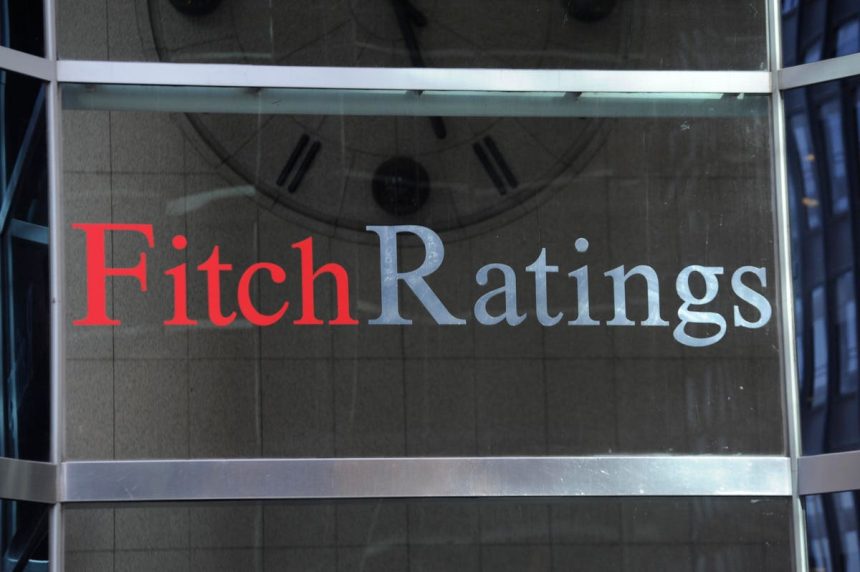How concerned should policymakers and their constituents be about Fitch Ratings Agency’s decision to downgrade the United States credit rating from AAA to AA+ last week? The White House brushed it off, saying Fitch “defies reality” to downgrade U.S. credit at a time when the country is experiencing “the strongest recovery of any major economy in the world.” Meanwhile, leading Republicans say it’s a “a wake-up call to get our fiscal house in order before it’s too late.” The truth is: they’re both right.
On the fundamentals, this downgrade is perplexing because the federal government is no more likely to miss a bond payment today than it has been for the past decade. As the world’s largest economy and one that borrows in its own currency, there is little doubt the U.S. government has a greater ability to pay back its debts than any other entity on Earth. Both Fitch and Moody’s Analytics reaffirmed the AAA credit rating in 2011 even when formerly unprecedented debt-limit brinkmanship caused S&P to issue the first-ever downgrade of U.S. credit. Little has changed since then from a financial perspective — if anything, the U.S. economy is far stronger than it was 12 years ago, both in absolute terms and relative to other advanced economies.
But in another sense, the lack of any meaningful change in the government’s approach to fiscal policy from 12 years ago is exactly the problem. In 2011, the federal government was running an annual budget deficit equal to 8.4% of gross domestic product. This made sense at a time when the national unemployment rate was roughly 9% and expansionary fiscal policy was needed to support a weakened economy struggling to recover from the 2008 financial crisis. Today, the annual budget deficit is over 6% of GDP — roughly triple what it averaged in the 50 years before the financial crisis, even though unemployment today is lower than it was at any point over that period.
The consequences of running a $1.5 trillion budget deficit when the economy is at full employment are now materializing as a high cost of living. Since Congress passed the $1.9 trillion American Rescue Plan Act in March 2021, prices have risen at a rate more than twice the Federal Reserve’s inflation target. The standard of living for many working families fell during this time as their wages were unable to keep up with breakneck price increases. Although inflation now appears to finally be cooling off, this was only possible because the Fed dramatically raised interest rates.
The cost of borrowing will be a growing concern in the years ahead. Each year our government runs a deficit, the national debt increases by the amount of government borrowing needed to cover the difference between revenue and spending. The combination of growing debt and a higher cost of servicing that debt will lead interest costs to balloon in the coming years. On our current path, the non-partisan Congressional Budget Office projects federal spending on interest payments will exceed spending on defense before 2030. By 2050, interest will surpass Social Security as the single largest category of spending in the federal budget.
If left unchecked, these ballooning interest costs threaten to crowd out critical public investments and make it even more difficult for policymakers to close the gap between revenue and spending than it already is. Higher interest rates make mortgages and other consumer credit more costly, putting affordable housing further out of reach for millions of families. CBO also projects rising debt will reduce income growth in the United States by roughly one third over the next 30 years. Today’s politicians have a moral imperative not to saddle their youngest constituents with the greatest burdens.
Washington must respond to Fitch’s wake-up call in two ways. First, policymakers should reform or abolish the federal debt limit, which currently limits the Treasury’s ability to finance the debt Congress incurs rather than preventing those bills from being run up in the first place. Although nobody really questions the federal government’s ability to repay its debts on time, repeated brinkmanship over raising the debt limit in a timely manner calls into question its willingness. It’s worth noting that the debt limit wasn’t raised until the end of the day on June 1, which was within the window of potential default projected by the Treasury up until less than a week beforehand. That’s too close for comfort as far as the ratings agencies (and many investors) are concerned.
Second, Congress must move toward a more responsible fiscal policy that dramatically curtails structural budget deficits. The Responsible Budgeting Act, first introduced by Representatives Scott Peters (D-Calif.) and Jodey Arrington (R-Texas), offers a promising framework that removes the debt limit as an economic threat while imposing better mechanisms to promote fiscal discipline. Another option would be for Congress and/or the president to appoint a bipartisan commission tasked with tackling the problem. But for such an approach to work, everything will have to be on the table and the commission’s recommendations will have to receive more serious consideration in Congress than those produced by the Bowles-Simpson fiscal commission appointed by President Obama in 2010.
Despite Fitch’s downgrade, the fundamentals of the U.S. economy remain strong. But that won’t be the case forever if policymakers don’t make fiscal policy more responsive to macroeconomic needs. Continuing the same fiscal policy designed to lift a stricken economy out of recession will simply fuel inflation and dampen growth over the long term. With deficits on track to increase in perpetuity under current policies, Washington can’t afford to keep hitting the snooze button.
Read the full article here









